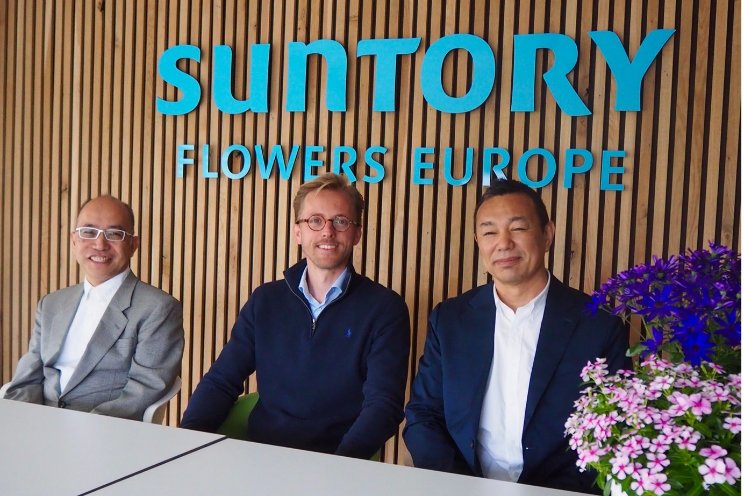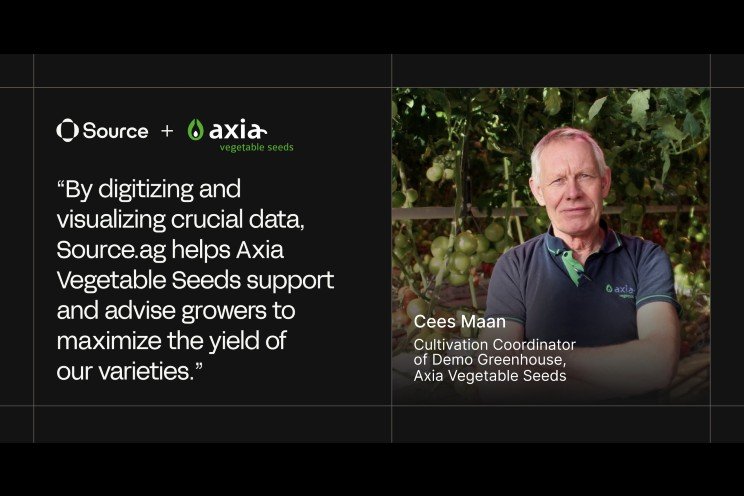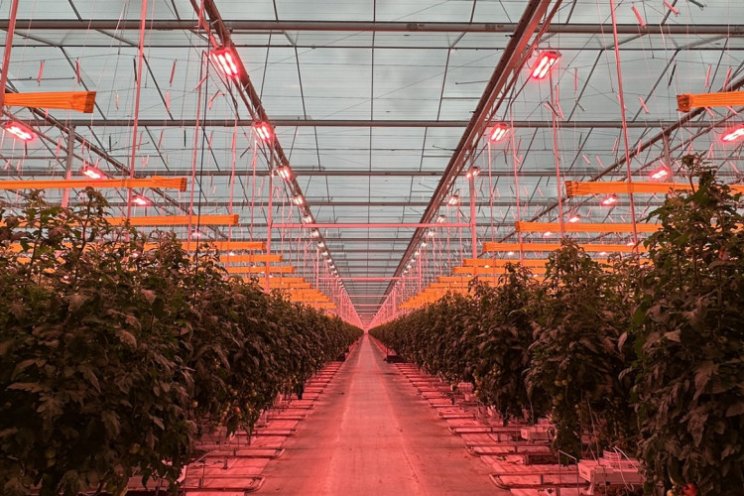80 Acres Farms on historic $160M raise
Added on 17 August 2021

When news broke Monday, it sent shock waves through the local startup ecosystem and beyond, and for good reason. The company's $160 million Series B ranks as the largest capital raise in the region's history — by a long shot. It's more than all the startups in Greater Cincinnati raised in 2019 combined. It positions 80 Acres, already experiencing steady traction, with the debut of its most recent $30 million, 70,000-square-foot farm in Hamilton this year, for fast acceleration, with new sites and at least a doubling of its employee count.
That being said, it's more than just the number, Zelkind, 80 Acres' CEO, is quick to point out. He's focused on the level of investors and the timing of the raise.
"The quality of the investors in this case continues to show the industry is maturing," he said. "We're just getting started, and we're already looking to what's next."
Vertical farming as an industry is capital intensive, meaning 80 Acres is almost in perpetual fundraising mode.
There are dollars to be had: BrightFarms, a New York-based grower, which maintains a greenhouse in Wilmington, announced a $100 million Series E in October. Bowery Farming, also in New York, announced a $300 million round in May with a $2.3 billion valuation. And in February, Kentucky-based AppHarvest merged with a special purpose acquisition company, or SPAC, and is now worth $1.5 billion.
Zelkind wouldn't disclose the company's valuation — including whether or not 80 Acres has reached lauded "unicorn" status, a designation reserved for companies worth a billion dollars or more.
He did say the round brings 80 Acres' total funding to $250 million, a number he's previously held close to the vest. The company has been intentional in the past about keeping previous rounds under wraps and pursued smaller amounts as it built the business and proved the technology and customer base.
"There are lots of other pioneers doing this, but we're doing it our way with the right investor base, very strategic, very focused and on a mission," he said. "We're continuing to evolve in a way that we promised each other when we started this company."
The investor pool is both tech and climate focused. 80 Acres Farms use 97% less water than traditional farming practices and are powered by renewable energy. The company relies heavily on its technologies, robotics and advanced data analytics.
General Atlantic, a New York City-headquartered growth equity firm, led the Series B, joined by Siemens Financial Services, the U.S. financing arm of global technology company Siemens. General Atlantic has invested in more than 400 companies in its 40-plus years in the consumer, financial services, health care, life sciences and technology spaces.
Blue Earth Capital, formerly PG Impact Investments, headquartered in Switzerland, which invests in social or environmental solutions; and General Atlantic's Beyond NetZero team, in addition to existing investors like Barclays and Taurus, also participated.
Beyond NetZero's Eli Aheto, a former 80 Acres board member, said the company has proven it can reduce food miles and food waste — its farms are built close to where fresh produce is consumed, instead of trucked in from California or Mexico — reducing the resulting negative carbon emissions that exist within the food supply chain.
Shaw Joseph, managing director of General Atlantic, told me interest in vertical farming is driven by just that: its potential to deliver a superior product and growing concerns over supply chain and food security.
He said he first met Zelkind and Tisha Livingston, 80 Acres co-founder and CEO of Infinite Acres, its sister company, a couple years ago, when General Atlantic did some market mapping in the space.
Joseph said 80 Acres has all the ingredients, no pun intended, to scale and fast.
"Not every company — even companies that get off to strong starts — is capable of hitting the acceleration button when it comes to growth," Joseph said. "The performance and yields that 80 Acres is delivering from its Hamilton farm, and at commercial scale, exceeded anything else we had seen in the industry. We have good reason to believe that is sustainable."
Zelkind said the funds, generally, will help 80 Acres launch new farms, both domestically, and for the first time, abroad. Besides its four farms in Hamilton and a site in Cincinnati, it has farms in Daphne, Ala.; Springdale, Ark.; and Granite Falls, N.C.
Its team, north of 200 people now, could double or triple over the next year.
A case study
Within five minutes of meeting Zelkind and Livingston for the first time in late 2017, Hamilton City Manager Joshua Smith knew he needed to recruit the company to his town.
For 100-plus years, Hamilton had been a manufacturing heavyweight, home to Mosler Safe and Champion Paper, among others. All industries it subsequently lost.
Smith saw 80 Acres as the new wave. The city put together an incentive package quickly, prompting 80 Acres to shift its corporate headquarters away from Spring Grove Village.
Hamilton officials have moved mountains ever since to make accommodations. They heavily discounted land for 80 Acres' most recent vertical farm. Smith even gave up his own corner office at city hall to make room for the company's team.
This week's news served as validation, he said.
"We are committed to doing whatever it takes because they are our future," Smith told me. "(Zelkind) has had that vision (to be a unicorn) from day one. What does that means for Hamilton? I'm hoping it puts us back on the map in terms of advanced manufacturing. For 80 Acres, it validates what's happening in Hamilton and proves to both domestic and international investors that this is a great place to come into."
Pete Blackshaw, who leads the charge at Cintrifuse, an Over-the-Rhine-based startup catalyst, called the Hamilton and 80 Acres partnership a "can do" case-study for the ages.
"Hamilton rolled up its sleeves and mapped 80 Acres to its growth ambition," he said. "The city's startup 'grit' and resilience is now shaping a bold new farm tech sector in southern Ohio — and the world is paying attention."
Blackshaw had several other descriptors for the 80 Acres news overall: "mind boggling," and "transformative," to name a few. Peer cities like Columbus and Indianapolis have benefitted from so-called "unicorns," which eventually spin-off startup-hungry alumni, he said. The 80 Acres investment has the potential to create a bumper crop of new savvy "green" startup founders.
"The rapid acceleration of sustainability in every sector is potentially transformative for Greater Cincinnati. 80 Acres is writing us bold memo on what's possible," Blackshaw said. "Make no mistake, today's youth are fixated on the environment. We absolutely can't lose this talent, because they believe green leadership only occurs on the coasts, or somewhere in the forest. 80 Acres is proof positive these things can happen here."
Photo 1: 80 Acres Farms, a Hamilton-based vertical farming startup, raises plants in nutrient-enriched water and uses a combination of data analytics and technologies to ensure optimal growing conditions.
Corrie Schaffeld
Photo 2: Mike Zelkind is CEO of 80 Acres Farms.
Corrie Schaffeld | Courier
Photo 3: An 80 Acres Farms employee harvests lettuce at its newest farm in Hamilton.
Leigh Taylor
Source: Biz Journals
Source: Biz Journals
More news















